Commissioning is a methodical, documented process to ensure that facilities, systems, and equipment meet established design requirements and stakeholder expectations. The commissioning process verifies the following: what was specified was installed; that it functions properly; and that it was successfully turned over to the user.
So, what is a commissioning engineer job? Commissioning engineers, also known as engineers or CQV engineers, main role is to inspect the equipment, facilities and any other aspect of an engineering project to ensure that it has been designed and installed correctly. To do so, they will frequently create reports, assist with technical issues, conduct testing procedures, and oversee the entire life cycle of the project. Commissioning engineers work in industries wherever engineering projects are involved. Here at QCS Staffing, we currently recruit commissioning engineer jobs for three industries: renewable energy, life science, and data centre & IT.
The engineering services market is growing and expected to register a CAGR of 8% during the forecast period, 2021 - 2026. This is, therefore, the perfect time to kickstart your career as a commissioning engineer!
Schedule
The work schedule of a Commissioning Engineer can vary, but it often follows a standard 40-hour workweek. However, during critical project phases, longer hours and occasional weekend work might be necessary to meet deadlines. The role may also involve travel to different project and/or supplier sites for engineering reviews, FATs (factory acceptance testing) etc, which can be domestic or international, depending on the company's reach.
Day to Day Duties
Commissioning engineers play a vital role in the construction and operation of complex systems, ensuring that everything functions smoothly before they go into service. Their work spans various industries, including manufacturing, energy, and construction.
Schedule
The work schedule of a Commissioning Engineer can vary, but it often follows a standard 40-hour workweek. However, during critical project phases, longer hours and occasional weekend work might be necessary to meet deadlines. The role may also involve travel to different project and/or supplier sites for engineering reviews, FATs (factory acceptance testing) etc, which can be domestic or international, depending on the company's reach.
Day to Day Duties
Commissioning engineers play a vital role in the construction and operation of complex systems, ensuring that everything functions smoothly before they go into service. Their work spans various industries, including manufacturing, energy, and construction.
Requirements for the roles
Commissioning engineers typically hold a bachelor's degree in engineering or a related field. This educational foundation equips them with the necessary knowledge to excel in their role. Experience requirements can vary depending on the role; however, commissioning experience is always highly beneficial for every role. There are also many soft skills which are important for commissioning engineer jobs like: problem solving, communication, documentation, project management, computer skills, regulatory knowledge, adaptability, teamwork, and quality assurance skills.
Salaries
The salary of Commissioning Engineer jobs in the life science industry can vary based on experience, location, and company size. On average, engineers who are FTE’s can earn a salary of £36k, with the potential for higher earnings as experience and expertise increase. For those Commissioning Engineers who choose to go freelance contracting, then they can earn significantly more.
Employment Opportunities
The demand for commissioning engineers is on the rise, with opportunities in industries like construction, manufacturing, energy, and more. This demand is driven by a growing need for efficiency, quality, and safety in industrial processes.
Find your next Commissioning Engineer job with QCS Staffing
At QCS Staffing, we are specialists in uniting people with life changing industries like Life Sciences, Renewable Energy, and Data Centres and IT. All these industries require Commissioning Engineers, so if this is a role or industry that interests you, get in touch with us today!
Take the next step in your career and browse our latest vacancies Commissioning, Qualification and Validation vacancies. If you can't find the role looking for, sign up for job alerts and take advantage of our latest opportunities.




